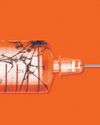CATEGORIES
Categories

Sales Rise at Home Depot; Rates Cloud Outlook
Home Depot beat Wall Street expectations for sales and profit last quarter, but offered cautious guidance as higher interest rates continue to pressure big-ticket purchases.

States Consider Making App Stores Verify the Ages of Users
The fight over online child safety is reigniting in state legislatures across the country this year, pitting social-media titan Meta Platforms against app-store giants Apple and Alphabet's Google in a dispute over who should verify the ages of users.

Panda Bear's Indie-Pop Experiments
In the 2000s, Animal Collective was among the most innovative bands making music, pushing a new vision of psychedelia into the world.

Medical Mayhem
Among the more reliable sources of anxiety, conflict and drama in fiction are the family, the battlefield and the hospital-\"Berlin ER\" being a combination of the three, with a bonus dose of dysfunction.

Companies Wrestle Over Projections for Duties
A barrage of tariff orders and threats from the Trump administration has left finance chiefs grappling with making projections in their earnings guidance to investors about the potential impact of shifting trade policy.

Hims & Hers Stock Has Further to Fall
Stock in Hims & Hers Health was bound to tumble once it could no longer sell compounded versions of the weight-loss drug Wegovy at scale.

DOGE Cuts Threaten Property Market
The Trump administration's move to terminate millions of square feet of federal leases and sell government buildings threatens to weaken a fledgling recovery in the U.S. office market, from California to Washington, D.C.

Middleby to Spin Off Food-Processing Arm
Kitchen-equipment maker Middleby is spinning off its food-processing business and refreshing its board with new directors in a bid to unlock value.

Altice Makes Deal With Its Creditors
Altice France, the European telecom giant led by billionaire Patrick Drahi, struck a global debt deal with investors holding more than $25 billion in bonds and loans, one of the largest of a new breed of restructuring transactions, people familiar with the matter said.

Tesla Updates Driving Software in China
Carmaker looks to win over Beijing regulators as competition revs up

The Thoughts of Chairman Xi
The foolish Americans don't realize we will soon pass them in military, and especially naval, power.

Living To Go Live
In 2019 a young woman went viral crying over a virtual dead rabbit.

Registry Launched for Those in U.S. Illegally
Trump immigration initiative would impose fines, prison for noncompliance

House Passes Plan Of Tax, Budget Cuts
Republicans squeaked their budget blueprint through the House late Tuesday after party leaders swayed a handful of wavering members to back the framework for President Trump's tax, border and spending-cut agenda.

Nvidia Investors Aren't Scared by DeepSeek
Nvidia had a rocky start to the year.

Investor Bets Big on Empty Office Space
Office market is showing signs of recovery and attracting more investors.

Robot Umpires Have Arrived. Players Are Looking Clueless.
The new computerized system has led to a series of challenges from pitchers who don't know the strike zone quite as well as they think

Nippon Steel, U.S. Officials To Talk Deal
Nippon Steel Chief Operating Officer Tadashi Imai said Tuesday that the company will discuss its planned acquisition of U.S. Steel with U.S. government officials, after former President Joe Biden blocked the takeover bid in January citing the threat it posed to national security.

Church Pensions Sidestep Oversight
Fund collapses at religiously affiliated hospitals upend retirees' plans

Musk's Cuts Create Unease in Congress
Congressional Republicans signaled they want Elon Musk to hand over more control of his sweeping cost-cutting drive to newly confirmed cabinet officials running the administration's agencies, as they face mounting concerns from constituents back home.

Cyberattack Dents Krispy Kreme's Results
Krispy Kreme is guiding for higher organic sales this year after a cyberattack ate into its fourth-quarter growth, though shares dropped after the outlook missed Wall Street estimates.

A Well-Traveled Volvo That ‘You Bond With’
Joe Lazenby, 78 years old, who lives in Harrisburg, Pa., and owns Susquehanna Spares, a company that specializes in vintage Volvo parts, on his 1963 Volvo PV544, as told to A.J. Baime.

BlackRock Distances Itself From Diversity
Annual report of big asset manager and DEI pioneer drops inclusion references

Trump Jolts Europe to Boost Its Security
Leaders rush to spend more on military as U.S. threatens to withdraw protection

The Missing $25 Gift Card That's Rocking the Hamptons
Mystery has prompted a disciplinary trial and derailed a school principal's career

Bosses Already Know Your Output
Lots of employers use technology for feedback on worker performance

Decimated Hamas Prepares for New Fight With Israel
Hamas is regrouping its military forces for a potential return to fighting with Israel in Gaza, as mediators work to salvage the cease-fire that expires this weekend in the enclave.

Why We No Longer Trust Doctors Like We Used To
Patients often feel ignored and complain about disjointed care and a lack of communication

Home Buyers Finally Get the Upper Hand
A slowdown in demand and growth in supply are changing the balance of power in today's housing market

Can the Cult of Kiko Kostadinov Go Mainstream?
Rather than dilute his vision for the masses, fashion's wildest young designer is converting fans to the church of the weird.